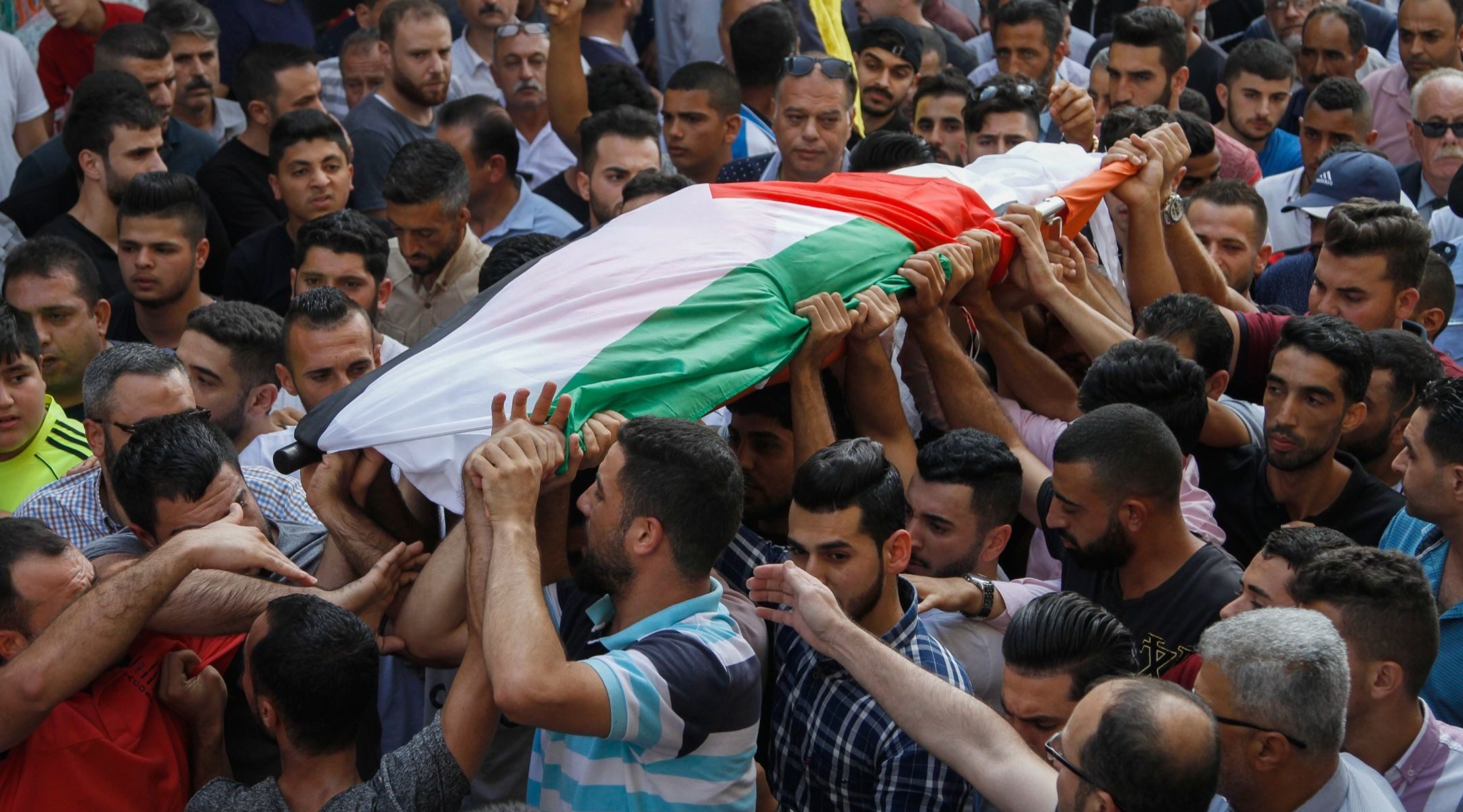JERUSALEM (JTA) — At least five Jewish teens from a West Bank yeshiva high school are being held in an Israeli jail, accused by the Israel Security Agency of “severe terrorist offenses.”
Three of the teens were arrested on Dec. 30 and prevented from meeting with attorneys for a week. Two more boys were arrested at the yeshiva on Saturday and were scheduled to meet with their attorneys on Tuesday for the first time.
What are the teens accused of?
The Israel Security Agency, or Shin Bet, is accusing the teens of Jewish terrorist activity. Specifically, they are accused of involvement in a rock-throwing attack in mid-October, near the community where their school is located, that led to the death of a Palestinian mother of nine.
Who was their victim?
Aisha Mohammed Rabi, 47, was killed at the Tapuah Junction in the northern West Bank. A rock thrown at the car driven by her husband struck Rabi in the head. Her husband told the international media that the rocks were thrown from near a Jewish settlement and that he heard people speaking Hebrew, though he did not see them.
Yakoub Rabi, 52, spoke to Hahadashot news following the first official announcement of the arrests on Sunday.
“It won’t bring her back,” he said. “But I would like [the killers] to be arrested and imprisoned, so there is justice, so something like this doesn’t happen again.”
How are the teens being treated?
The Honenu organization, which provides free legal defense for Jewish settlers, has called the interrogation of the teens “brutal.”
“From morning to night [my client] was shackled to a chair, sleeping on a mattress on the floor in a small cell,” attorney Adi Keidar of Honenu said after meeting one of the teens for the first time on Saturday night. “The boy I met was tired, broken and exhausted.”
Keidar and his colleague Nati Rom said in a statement that the teens also were questioned on Shabbat.
“Our clients underwent trying days and suffered the extremely inappropriate conduct of the GSS interrogators,” they said. “The trauma of the interrogations, through no fault of their own, will remain with them for their entire lives. The order preventing us from meeting with the minors stemmed from unacceptable considerations, and its sole purpose was to extract false confessions from the interrogated detainees, a process which did not succeed.”
The Israel Security Agency responded in a statement saying that the detained teens “are receiving the full rights to which they are entitled by law. Claims to the effect that they are being denied their rights in violation of the law are without any foundation and are designed to divert discussion from the severe accusations for which the suspects are being held and questioned.”
On Tuesday, Israeli President Reuven Rivlin defended the security agency.
“The ISA is under fire at the moment. There can be no democracy without criticism,” Rivlin said at the swearing-in ceremony of 29 new Israeli judges. “But we must take care to avoid irresponsible attacks on those whose job it is to protect and defend Israel’s security from domestic and foreign threats.”
Where do the teens go to high school?
They attend the Pri Haaretz yeshiva in the northern West Bank settlement of Rehelim. The school is three years old and was founded to engage Orthodox Jewish teens who are attached to the land and less attached to full-time Torah study.
Its founder has been described as a once-“dominant” figure among the so-called hilltop youth, who are considered the most hardcore right-wing activists and frequently clashed with security. The Rehelim settlement itself is considered more moderate than the founders of Pri Haaretz, The Times of Israel wrote in a feature article on the school.
How is the settler community reacting?
Hundreds of protesters gathered Saturday night outside the prime minister’s residence in Jerusalem to protest the detention of the teens under the banner “Settlers also have basic rights.” It was the second protest since the teens have been detained.
Politicians also have gotten involved. Israeli Justice Minister Ayelet Shaked of the new political party The New Right met Monday with the families of the detained teens. She has come under fire from the political left for attending the meeting, which comes on the heels of a phone call from the mother of one of the teens in which Shaked offered comfort.
Reports on Monday also noted that the day after the rock-throwing attack, which was Saturday, a group of activists from the nearby settlement of Yitzhar drove to the yeshiva in Rehelim to talk to the students about how to handle a security agency interrogation. Driving on the Jewish Sabbath is forbidden unless it is considered a matter of life and death. The activists reportedly received permission from local rabbis to drive on Shabbat.
What is Israel’s record on prosecuting Jews accused of violence against Arabs?
Here’s what Yesh Din, an Israeli human rights organization, wrote in a 10-year review of the investigations and indictments of Israeli citizens suspected of harming Palestinians:
“Our data has consistently demonstrated that the rate of solved cases of ideologically motivated crimes committed against Palestinians and their property has remained extremely low, and the number of indictments against Israeli suspects is so low that it can be considered negligible.”
The review found that some 85 percent of investigations into such cases — including violence, arson, damage to property, mutilation of trees and takeover of land — ended with no further action taken, and that the odds of a police complaint filed by a Palestinian resulting in the conviction of an Israeli civilian were 1.9 percent.
JTA has documented Jewish history in real-time for over a century. Keep our journalism strong by joining us in supporting independent, award-winning reporting.






